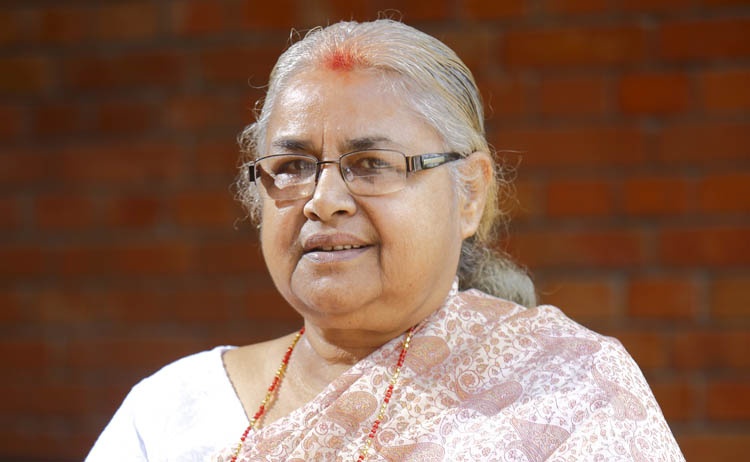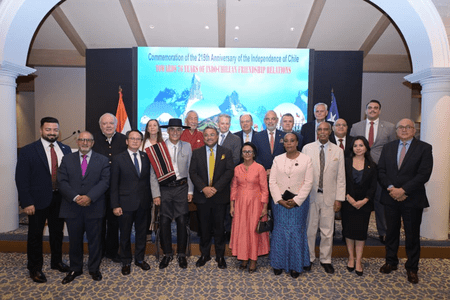
Kathmandu, September 13 (HS): Sushila Karki has made history twice in Nepal—first in 2016 as the country’s inaugural female Chief Justice, and now, nearly a decade later, as its first woman Prime Minister. Revered for her reformist rulings against political elites, Karki’s rise to premiership comes at a watershed moment as Gen-Z-led protests—fueled by anger over corruption, privilege, and social media restrictions—forced Prime Minister KP Sharma Oli from office and thrust her into leadership.
Her appointment, facilitated by the Nepalese Army amid national turmoil, defied traditional power transitions and offered a beacon of hope for those seeking accountability and reform in a male-dominated political landscape. For many, Karki’s leadership represents a symbolic breakthrough for transparency and change.
Born in Biratnagar, Morang, on June 7, 1952, into a politically influential family, Karki was shaped by early exposure to debates on democracy and justice. Initially encouraged toward medicine, she chose law for its power to address social and governance issues in a male-dominated field. She graduated from Mahendra Morang Campus, earned a master’s degree in political science from Banaras Hindu University, and completed her law studies at Tribhuvan University.
Karki’s legal career began in 1978, quickly gaining her a reputation for integrity and meticulous preparation. She held prominent legal positions, including president of the Biratnagar High Court Bar Association, and was ennobled as a senior advocate in 2007. Appointed ad hoc Supreme Court Justice in 2009 and permanent Justice in 2010, she ascended to become Nepal’s first female Chief Justice in July 2016—although her tenure lasted less than a year, she left a transformative mark.
Nationally acclaimed for her uncompromising anti-corruption stance, Karki issued historic judgments, including the conviction of a sitting minister and ousting a powerful anti-corruption chief, often challenging power with principled resolve. Her decisions strengthened judicial independence and inspired a new generation of legal professionals.
Karki faced intense political backlash—her crusade against entrenched interests led to her suspension through an impeachment motion in 2017, only for the Supreme Court to reverse the decision, restoring her to office and reinforcing judicial autonomy. While opponents questioned her impartiality, supporters hailed her steadfast commitment to constitutional principles and ethical governance.
As interim Prime Minister, Karki must navigate a country grappling with institutional paralysis, low police morale, and damaged government infrastructure. She is tasked with steering Nepal out of a climate of fear and restoring trust in democratic processes—meeting the high expectations of the youth who propelled her ascent.
Diplomatically, Karki expressed her intention to uphold historic and cultural ties with India while skillfully managing the sensitivities of regional geopolitics. Domestically, she faces the urgent challenges of restoring law and order, conducting credible elections, investigating decades of corruption, delivering disaster relief, and rebuilding administrative effectiveness.
Her tenure will be measured by her capacity for decisive leadership, institutional reform, and the ability to inspire public trust during a time of uncertainty. For Nepal, Sushila Karki’s rise is not only a historic first—it is a hopeful signal that principled and courageous leadership can steer the nation through turbulence and lay the groundwork for a more accountable and resilient democracy.
—————
Hindusthan Samachar / Indrani Sarkar




